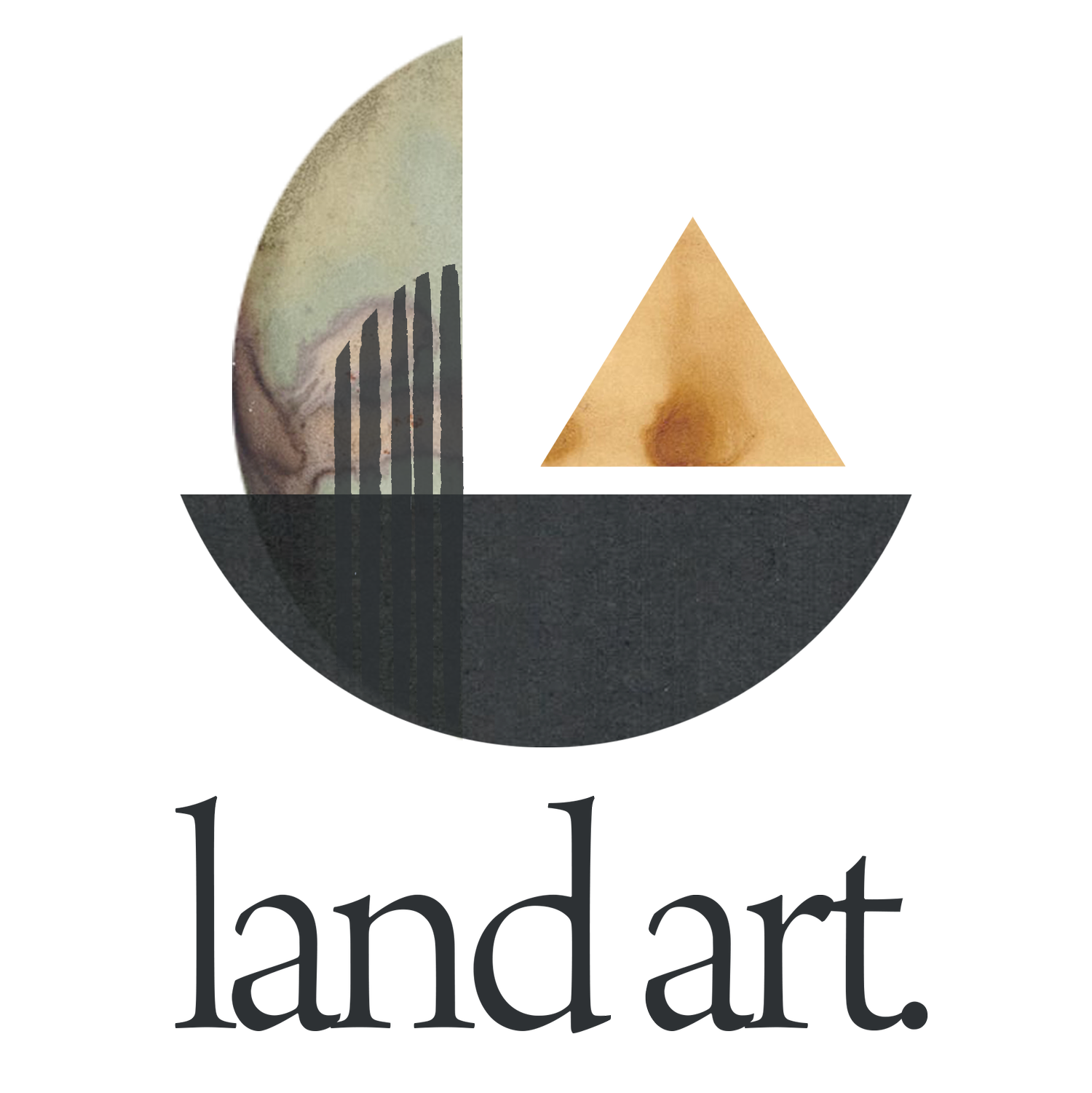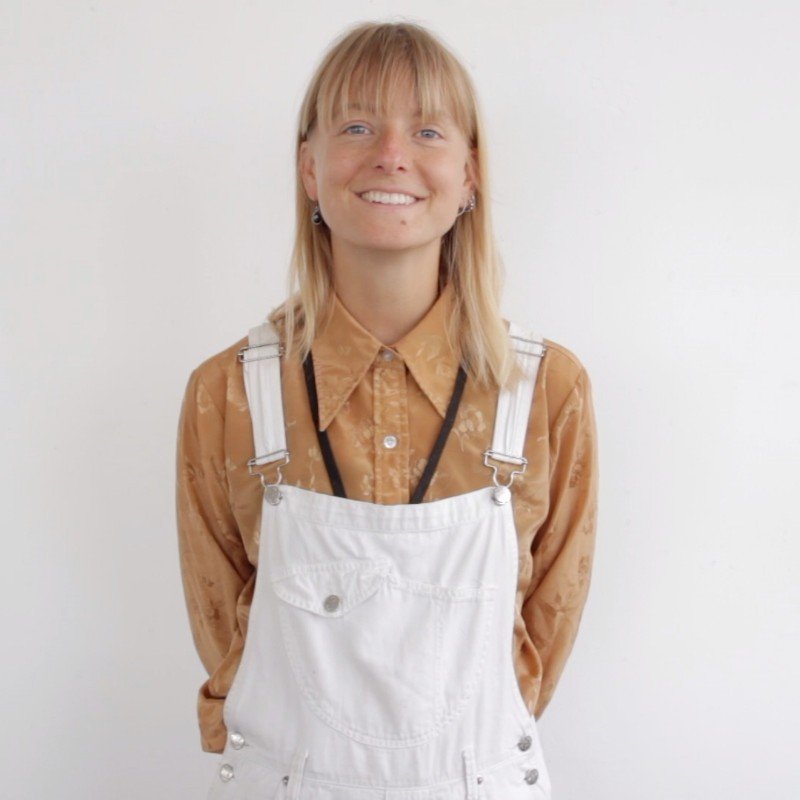
ANTHOTYPES
Discover the incredible anthotype process with the Sustainable Darkroom’s Hannah Fletcher.
Offering participants the opportunity to learn the anthotype history, process and future opportunities afforded to developing this skill. During the workshop you will be guided through the process of creating a selection of emulsions for anthotypes using red cabbage, turmeric and spinach leaves, these will then be used to coat paper.
All sessions are recorded and made available for a week following the course. This also includes times for any feedback questions.
2 Hours Live & Online
Upcoming Live & Online Dates
22 June, 6pm UK
£40
Access Pre-recorded Session
On-demand, at a time
that suits you
£35

Hannah Fletcher is an artist, working with cameraless photographic processes, founder of The Sustainable Darkroom, Co-director of London Alternative Photography Collective and a facilitator of sustainability within the arts.
Hannah works with and researches the many intricate relationships between photographic and not-so photographic materials. Intertwining organic matter such as soils, algae, mushrooms and roots into photographic mediums and surfaces. Fletcher questions the life cycle and value of materials by incorporating waste from her studio and workshops back into the system of making. Working in an investigative, ritualistic and environmentally conscious manner, she combines scientific techniques with photographic processes, creating dialogue and fusions between the poetic and political.
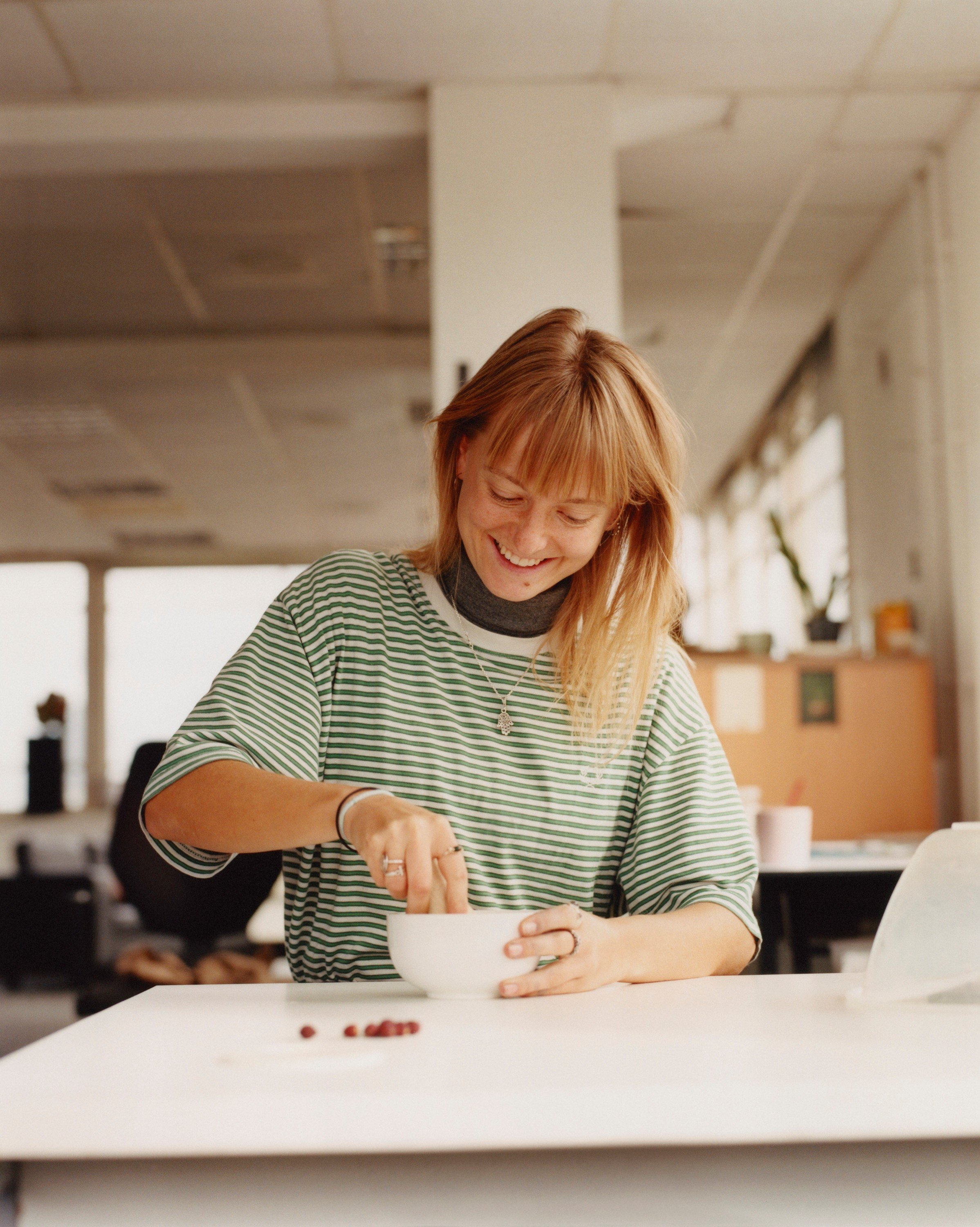
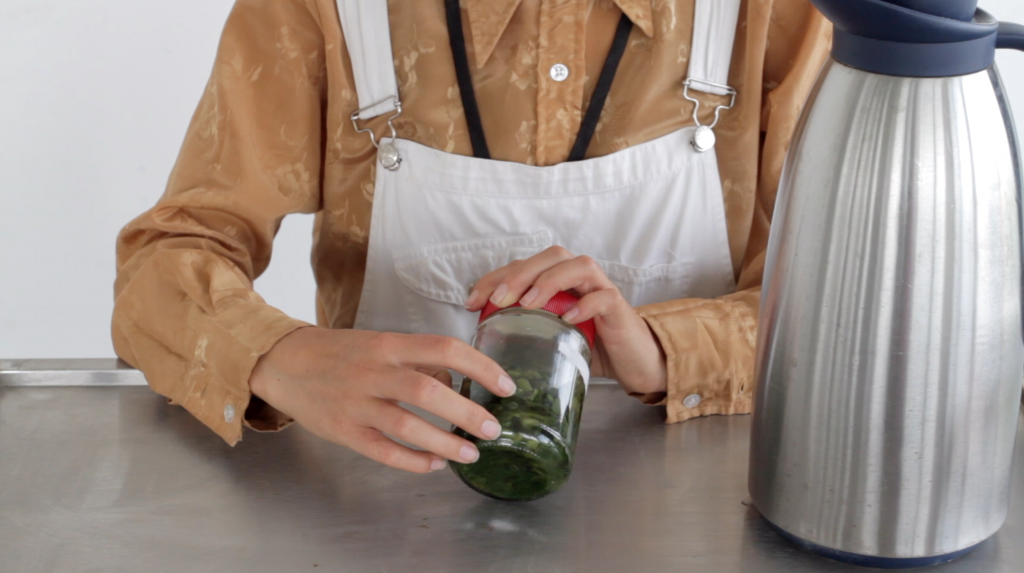
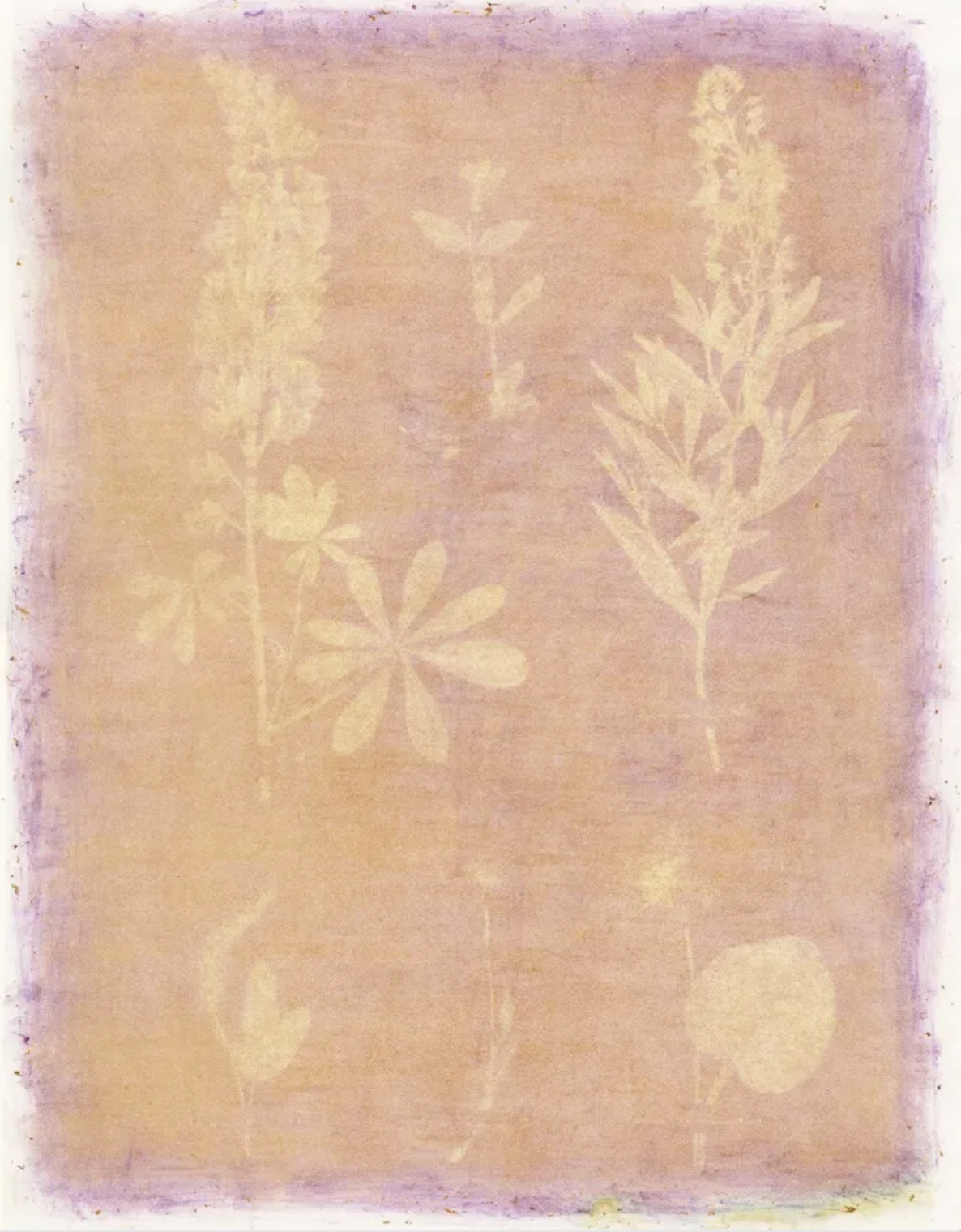




IN A 2 HOUR LIVE SESSION:
-
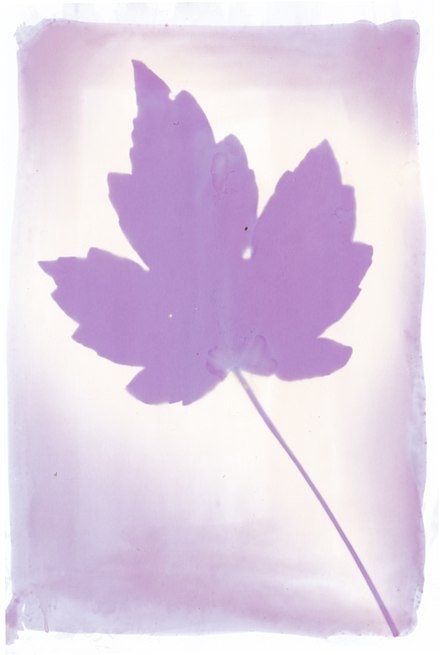
Learn
Offering participants the opportunity to learn the anthotype history, process and future opportunities afforded to developing this skill. During the workshop you will be guided through the process of creating a selection of emulsions for anthotypes using red cabbage, turmeric and spinach leaves, these will then be used to coat paper.
We will also cover the preparation of positives on both paper and acetate as well as using discard or found materials in place of a positive print. You'll find out how anthotypes were discovered and used through the centuries, and other plants that you can experiment with in the future.
-

Materials
Spinach (can be foraged wild spinach/ goose foot/ chickweed)
a couple of outer leaves from a red cabbage (fine if they are old/ not fresh)
a Jar of turmeric powder
Ethanol or basic white vodka
Cold pressed watercolour Paper. A few we recommend:
Hahnemühle photo rag paper, Hahnemühle bamboo mixed media paper, Bockingford Cold press paper, Canson drawing paper, Canson Montval cold press paper and Fabriano cold press watercolour paper
-

Tools
Hand blender / Pestle and Mortar
Brushes - We recommend a large foam or soft bristled brush, or hake brush
Trays/bowl for making emulsion
Muslin/cheese cloth
Newspaper
Scissors.

Our Workshop Feedback

